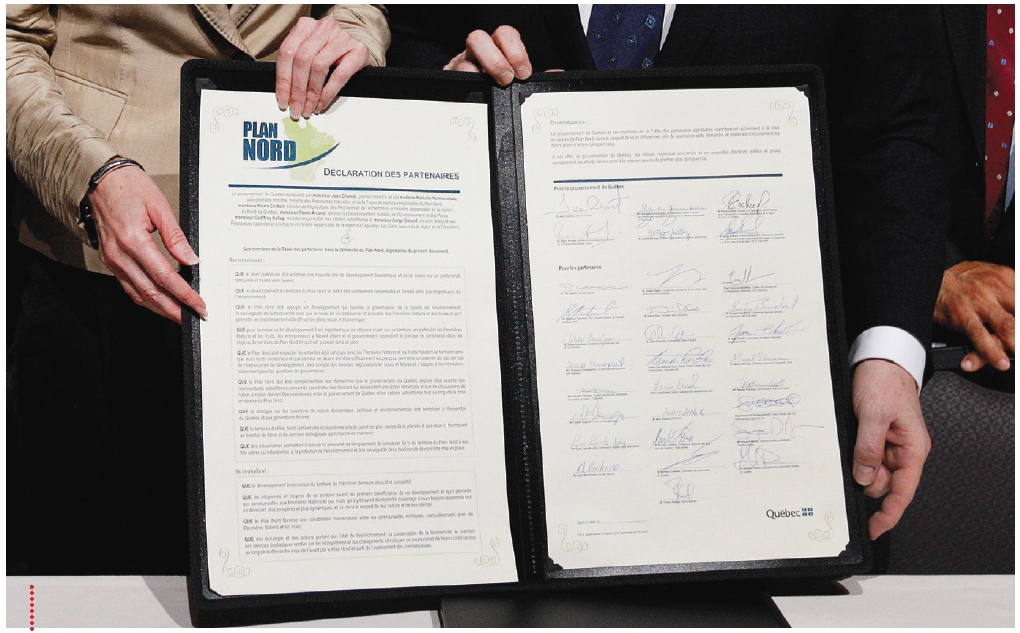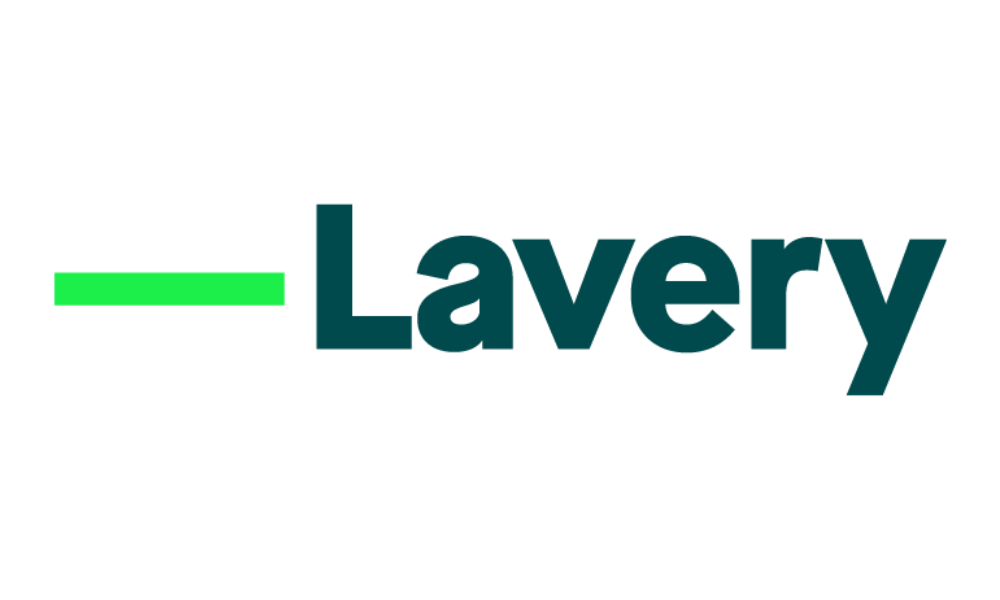A new Mining Act revives development plans
By Brian Burton
The fourth time was the charm for passage of an updated Quebec Mining Act, covering nearly all of the province above the 49th parallel. After failures of previous bills in 2009, 2011 and late in 2013, the Coalition Avenir Québec and the minority Parti Québécois government were able to find consensus on Bill 70, An Act to amend the Mining Act. The new amendments were passed on Dec. 10.
Mining clients were relieved, after a period of prolonged uncertainty, to see the new legislation adopted, with key changes from the previous Bill 43, says Martine Guimond, head of corporate finance and M&A for Gowling Lafleur Henderson LLP in Montreal. She added that 55,000 Quebecers are directly employed in the industry, which drew $7.7 billion in revenue at its height in 2007.
“It was the fourth kick at the can, and the whole mining industry really wanted to have a mining Act, as soon as possible,” Guimond says. The previous legislation dated from 1979 and was in need of updating in areas such community participation, ore processing within Quebec, mine-site remediation and royalty regimes.
To achieve quick passage, the new law left royalties to be dealt with by Bill 55, which is now before the Quebec legislature. Guimond says the previous Bill 43 would have required every mining lease application to include “a feasibility study on ore processing in Quebec,” with ministerial power to require processing. “That was a biggie and that's been tempered,” she says. The new law requires a “scoping and market study,” and contains a statement that the government may require maximized economic spinoffs “on reasonable grounds.”
The new law also requires approval of an environmental remediation plan before a mining lease can be granted, and gives the minister power to require a financial guarantee for 100 per cent of projected remediation costs. While the proposed Bill 43 required environmental assessments for all mines and ore processing plants, the new law exempts facilities with output less than 2,000 tonnes per day.
Guimond says several new provisions are designed to increase community involvement in the development of specific projects — drawing a line under an old law that was criticized for enabling mining company expropriations and giving little attention to community interests.
The new law upholds the Bill 43 proposal giving municipalities rights to designate mining-incompatible zones of any size within their jurisdictions — and it removes the Bill 43 clause that would have given the Minister of Natural Resources power to revise municipal designations. “It's a power they did not have previously but some municipalities were very adamant, so we'll see how it works,” Guimond says, adding the new power will presumably be tempered by the need for jobs.
The new law also requires establishment of a “monitoring committee to foster the involvement of the local community in the project as a whole. … We don't really know what this committee will do or where it will come from” and the industry is concerned about whether communities will have the necessary expertise for effective input, Guimond says.
The new law requires publication of mine-by-mine statistics on production tonnages and royalties paid. But a Bill 43 proposal to publish community agreements with mining companies was strenuously opposed by Aboriginal groups and was left out of Bill 70 when it became law. The Eeyou Istchee Cree said, “The disclosure of contributions … would result in the publication of sensitive commercial and strategic information that could hamper the future negotiation of agreements.”
In addition, the new legislative amendments require separate government consultations with Aboriginal communities on mining projects, where circumstances warrant, and that the government maintain and keep current an Aboriginal community consultation policy.
By Brian Burton
The fourth time was the charm for passage of an updated Quebec Mining Act, covering nearly all of the province above the 49th parallel. After failures of previous bills in 2009, 2011 and late in 2013, the Coalition Avenir Québec and the minority Parti Québécois government were able to find consensus on Bill 70, An Act to amend the Mining Act. The new amendments were passed on Dec. 10.
Mining clients were relieved, after a period of prolonged uncertainty, to see the new legislation adopted, with key changes from the previous Bill 43, says Martine Guimond, head of corporate finance and M&A for Gowling Lafleur Henderson LLP in Montreal. She added that 55,000 Quebecers are directly employed in the industry, which drew $7.7 billion in revenue at its height in 2007.
“It was the fourth kick at the can, and the whole mining industry really wanted to have a mining Act, as soon as possible,” Guimond says. The previous legislation dated from 1979 and was in need of updating in areas such community participation, ore processing within Quebec, mine-site remediation and royalty regimes.
To achieve quick passage, the new law left royalties to be dealt with by Bill 55, which is now before the Quebec legislature. Guimond says the previous Bill 43 would have required every mining lease application to include “a feasibility study on ore processing in Quebec,” with ministerial power to require processing. “That was a biggie and that's been tempered,” she says. The new law requires a “scoping and market study,” and contains a statement that the government may require maximized economic spinoffs “on reasonable grounds.”
The new law also requires approval of an environmental remediation plan before a mining lease can be granted, and gives the minister power to require a financial guarantee for 100 per cent of projected remediation costs. While the proposed Bill 43 required environmental assessments for all mines and ore processing plants, the new law exempts facilities with output less than 2,000 tonnes per day.
Guimond says several new provisions are designed to increase community involvement in the development of specific projects — drawing a line under an old law that was criticized for enabling mining company expropriations and giving little attention to community interests.
The new law upholds the Bill 43 proposal giving municipalities rights to designate mining-incompatible zones of any size within their jurisdictions — and it removes the Bill 43 clause that would have given the Minister of Natural Resources power to revise municipal designations. “It's a power they did not have previously but some municipalities were very adamant, so we'll see how it works,” Guimond says, adding the new power will presumably be tempered by the need for jobs.
The new law also requires establishment of a “monitoring committee to foster the involvement of the local community in the project as a whole. … We don't really know what this committee will do or where it will come from” and the industry is concerned about whether communities will have the necessary expertise for effective input, Guimond says.
The new law requires publication of mine-by-mine statistics on production tonnages and royalties paid. But a Bill 43 proposal to publish community agreements with mining companies was strenuously opposed by Aboriginal groups and was left out of Bill 70 when it became law. The Eeyou Istchee Cree said, “The disclosure of contributions … would result in the publication of sensitive commercial and strategic information that could hamper the future negotiation of agreements.”
In addition, the new legislative amendments require separate government consultations with Aboriginal communities on mining projects, where circumstances warrant, and that the government maintain and keep current an Aboriginal community consultation policy.
Recent Articles
Lawyer(s)
Martine Guimond





